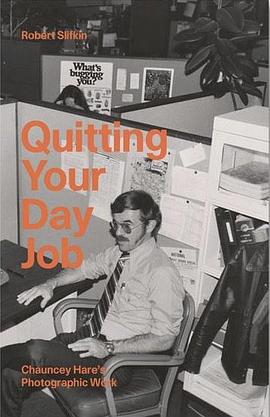Quitting Your Day Job
豆瓣
Chauncey Hare’s Photographic Work
Robert Slifkin
简介
Quitting YourDay Job: Chauncey Hare’s Photographic Workis the first critical biography ofthe American photographer Chauncey Hare (1934-2019). Although Hare received a significant, if fleeting, degree of professional success, including a solo exhibition at the Museum of Modern Art in 1977, an Aperture monograph, and three Guggenheim fellowships, his work has not received the critical attention it deserves and his extraordinary life story remains obscure.This lack ofrecognitionhas much to do with Hare’sfanaticalaversion tothecommercialrealmsof the art world even at the height of his professional success.Perhapshismost overt declaration ofaestheticdisavowal washis ultimate decision torenounce his identity as anartistin1985 and pursue a careerasa clinical therapist specializing in“workabuse” (which is also the title of a book he co-authored on the subject in 1997). Hare would subsequentlydonatehis entire archive to the Bancroft Library at the University of California—notablynotthe Berkeley Museum of Art—with the provision that the original prints cannot be exhibited and that any reproduction of his work must includea caption that states that the photograph was created“to protest and warn against the growing domination of working people by multinational corporations and their elite owners andmanagers.”
Quitting YourDay Jobconsidersthe vexed relation between art and politics that defined Hare’s career, drawingupon largely unexamined archival materials,new interviews and analyzing Hare’sbrilliant and moving photographs alongside the prolix and oftentimes bathetic prefaces he wrote for the three collections of his photographs.The bookpresentsa wide-ranging criticalaccount of Hare’s life and art, suggestingthe ways in which his work continues to resonate with contemporary concerns about the reach of corporations into everyday life, documentary photography’s longstanding complicity with the politics of liberal guilt, and art’s vexed relation to elite channels of power.